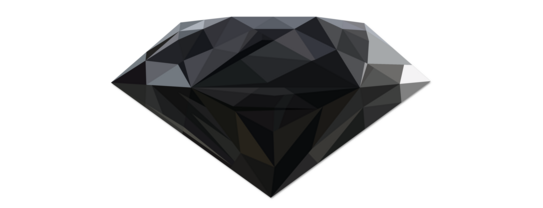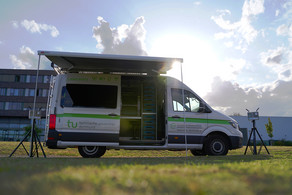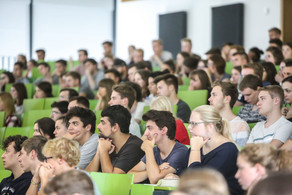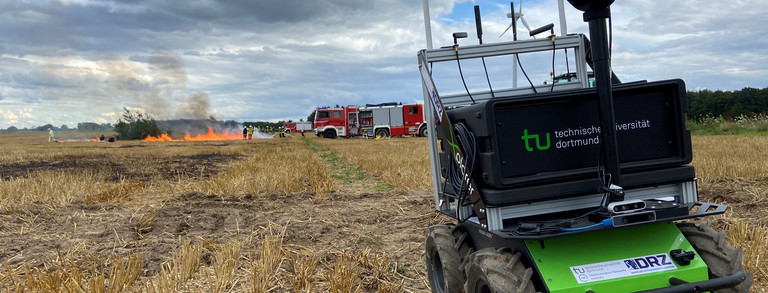6GEM

With their application "6GEM open - efficient - secure - safe", the RWTH Aachen University, the Ruhr-University Bochum, the Dortmund University of Technology and the University of Duisburg-Essen were successful in a call for proposals issued by the German Federal Ministry of Research, Technology and Space (BMFTR). The four universities will work together with four non-university research institutions on future communication technologies in 6G mobile communications from August 1, 2021. Co-applicants were the Fraunhofer Institute for Material Flow and Logistics, the Fraunhofer Institute for Microelectronic Circuits and Systems, the Fraunhofer Institute for High Frequency Physics and Radar Technology and the Max Planck Institute for Security and Privacy.
The 6GEM consortium combines scientific excellence and mobile communications expertise at the network, material, component/microchip and module levels in North Rhine-Westphalia. Experience in their implementation and worldwide networking is also available. A holistic approach is being pursued, from production and logistics to people with their needs for self-determination, privacy and security in times of climate change.
TU Dortmund contributes significantly to 6GEM. CNI is leading the 6G activities @ TU Dortmund.
6G Network Vision: Looking at the latest developments in the field of mobile networks (5G Private Networks, 5G Unlicensed Spectrum, Narrow-Band IoT) as well as in the field of radio technologies to be operated in unlicensed frequency bands (WiFi, LoRa), it becomes clear that no single radio or network technology will provide the only valid answer to certain sets of requirements and immediately replace all other approaches. In contrast, 6G networks will need to be able to handle and integrate multi-RAT (Radio Access Technologies) environments and multiple network operating modes in both licensed and unlicensed spectrum. The increasing maturity of Software-Defined Radio and Networking (SDR/SDN) enables open environments where achieving high-end performance while maintaining interoperability are still very much open research questions (e.g. in the context of Open RAN).
Sub-goal 1: Integrated 6G network design for heterogeneous radio access technologies
TU Dortmund's contributions focus onembedding new capabilities that will become available with a potential “6G New Radio” (in the mmWAVE and THz range) into a complete 6G network design that providesend-to-end service guarantees and seamless transitions between radio access technologies, operating modes and coverage areas.
Addressing the end-to-end challenge: To meet demanding end-user requirements (e.g. remote control of multiple robots or trucks in a mixed-reality environment), KPIs such as latency, throughput, energy efficiency and scalability must be achieved while considering the scale (multiple devices with mixed-critical requirements), dynamics (mobility, changing environments) and heterogeneity (mix of hardware and software) of a complete network.
Sub-goal 2: Open and powerful end-to-end service control functionalities
TU Dortmund University's contributions therefore focus in particular on the combination of new physical layer capabilities proposed in 6GEM with open network and end-to-end service control functionalities,which should be reflected in the evolution of O-RAN concepts. Interoperability must be combinedwith maximum energy and spectrum efficiency.
Most of the sub-project leaders at TU Dortmund University have a proven track record in transferring patents into successful products (through industry experience) and start-ups. Patents have already been filed for some of the above activities. Therefore, TU Dortmund University is confident that a relevant number of patents (target: at least 2 per PI within 4 years) will be filed.
TU Dortmund University also plans to contribute to broader open source activities (ns-3, ROS, Gazebo) as well as standardization (O-RAN) via 6GEM, with a focus on the RIC (RAN Intelligent Controller). TU Dortmund University is also involved in the provision of open data to promote research (e.g. network measurements), which leads to corresponding visibility in the respective communities.
TU Dortmund University and Fraunhofer IML can build on their experience and equipment in research activities in which new research concepts have been developed and shown with convincing demonstrators , e.g. in the context of logistics, robotics and automotive, at the Digital Summit 2019, the 5G.NRW Rocket Session 2020 and the MWC 2021.
6G application and implementation: While in previous generations of wireless networks, many aspects of the network architecture were initially written down on paper and implemented later, SDR/SDN enables an agile research process in which design concepts can be implemented and validated in laboratory and real-world environments. The data obtained in experiments can be integrated with digital network twins (see below) that allow to extend the scope of investigations (scalability, energy efficiency, new environments, etc.), leading to reliable results that can be transferred into products and provide convincing evidence to feed discussions in standardization.
Sub-goal 3: Validation of 6G performance characteristics in transfer and real environments
TU Dortmund University will implement the researched 6G technology concepts with Fraunhofer IML and other 6GEM partners in different experimental environments: highly dynamic and dense indoor logistics, highly dynamic outdoor automotive environments and ad-hoc rescue robotics. The detail and scope of the laboratory, transfer and real environments canbe scaled from dedicated limited and fully reproducible scenarios (short/medium term) to full-fledged network operation with stochastic behavior (long term) .
Further information:






